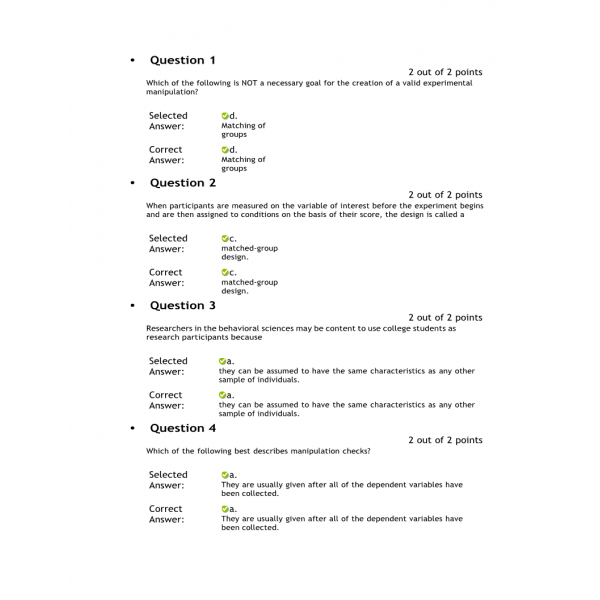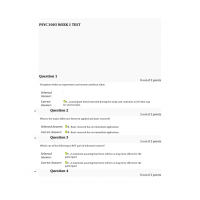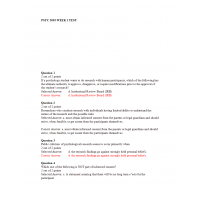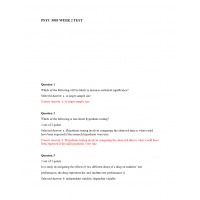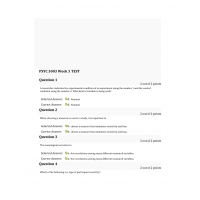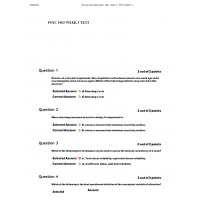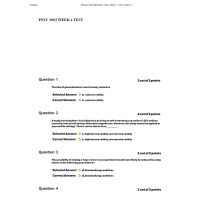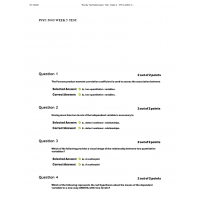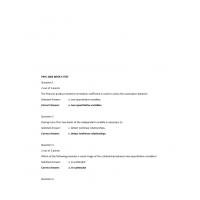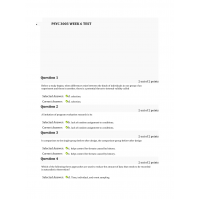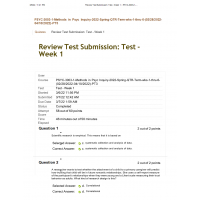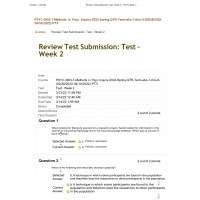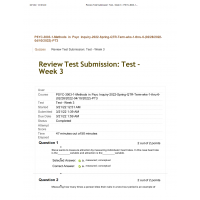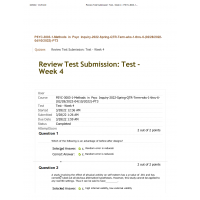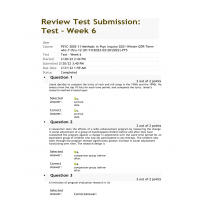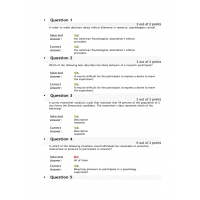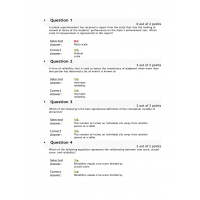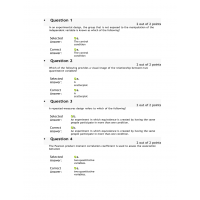PSYC 3003 Week 4 Test
PSYC 3003 Week 4 Test
1. Which of the following is NOT a necessary goal for the creation of a valid experimental manipulation?
2. When participants are measured on the variable of interest before the experiment begins and are then assigned to conditions on the basis of their score, the design is called a
3. Researchers in the behavioral sciences may be content to use college students as research participants because
4. Which of the following best describes manipulation checks?
5. A threat to internal validity that refers to the fact that the researcher knows the research hypothesis and thus causes an invalid confirmation of the research hypothesis is known as
6. Exact replications are most likely to be conducted because the researcher wants to
7. Findings that do not generalize
8. Which of the following is NOT true regarding field experiments?
9. Which of the following types of validity is threatened when a researcher commits a Type 1 or Type 2 error?
10. Which of the following refers to a false or misleading statement given by the experimenter about what is being studied that is used to reduce the possibility of demand characteristics?
11. Which of the following would NOT be useful in reducing extraneous variables?
12. The degree to which relationships among conceptual variables can be demonstrated in a wide variety of people and using a wide variety of manipulated or measured variables is known as which of the following?
13. A study involving the effect of physical activity on self-esteem has a p-value of .001 and has correctly ruled out all obvious alternative hypotheses. However, this study cannot be applied to any real-life settings. Thus it can be said to have .
14. The idea of generalization is most closely related to
15. When a participant’s expectation about what effect an experimental manipulation is supposed to have influences the dependent measure independently of the actual effect of the manipulation, the change in the dependent measure is called
16. Experimental realism is the extent to which
17. Researcher Franklin tests the limiting conditions of a previous finding by adding a new control condition to the design. Franklin’s experiment is a(n)
18. An experiment that is conducted in situations that are similar to everyday life experiences is said to have which of the following?
19. To determine whether a beneficial influence of therapy that has been found in a sample of women would also be found in a sample of men, the researcher will need to use which of the following?
20. A researcher who uses only college students in her research may be trying to
21. The primary goal of replication is to
22. In scientific research, validity refers to
23. Which of the following is NOT true about meta-analyses?
24. A variable other than the independent variable that is found to vary systematically among the conditions is known as
25. A variable that produces an interaction of the relationship between two other variables such that the relationship between them is different at different levels of that variable is a
26. A replication that investigates the relationship between the same conceptual variables that were studied in previous research but tests the hypothesis using different operational definitions of the independent variable and/or the dependent variable is known as a(n)
27. Before administering a manipulation designed to improve the mood of research participants, each participant completes a mood questionnaire. After the mood change is created, the participants then complete another mood questionnaire. The original questionnaire is used as a(n) .
28. Pilot testing before conducting an experiment helps to be sure that
29. Which of the following procedures can be used to help ensure standardization of conditions?
30. Which of the following best describes confound checks?
| Institution & Term/Date | |
| Term/Date | Walden University |
-
$9.99

